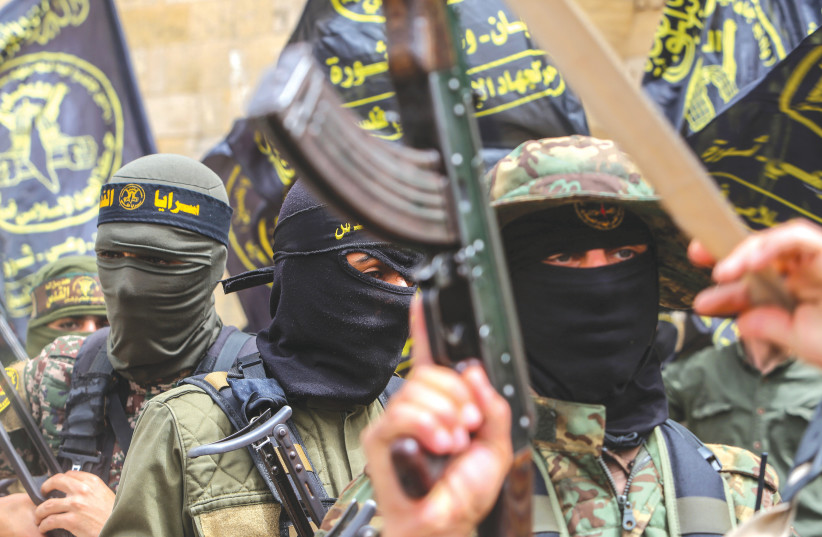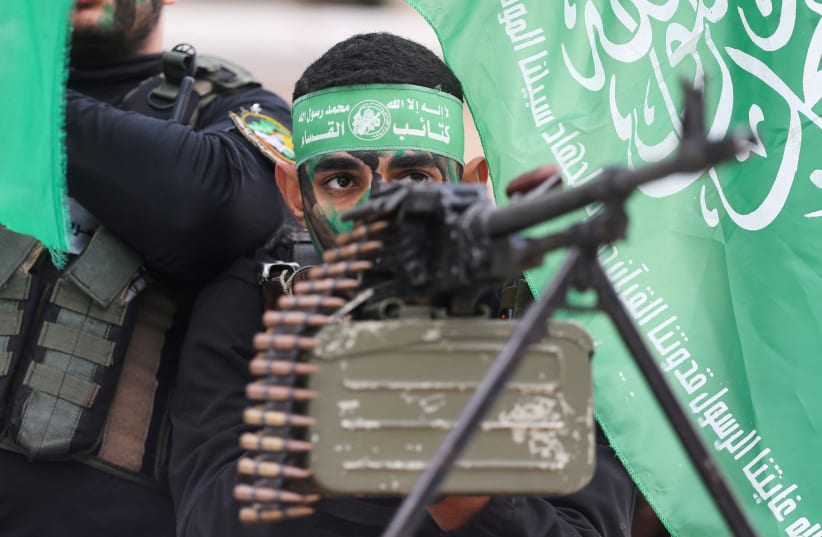Hikers in the North mostly kept their pre-planned schedules. The South returned mostly to its routine within a relatively short time. Hamas’s responses to the IDF striking its positions in Lebanon and Gaza were muted. It looked like Israel had restored deterrence.
But make no mistake, this latest round of connecting the Temple Mount, Gaza, Lebanon and the West Bank all in one fell swoop blew through any continued Israeli denial about who decides when wars will be fought – and it is no longer the Jewish state.
One could have concluded this from the 2014 and May 2021 Gaza Wars that Israel stumbled into and which Hamas used to score various public relations points.
But now Hamas learned in a more systematic way, with Iran and Hezbollah assisting, how to instigate its own ring of fire around Jerusalem.
Ring of Hamas fire

Israel’s enemies understand that when they attack on multiple fronts, it not only makes it harder for the IDF to respond, it creates an impression within Israel, the region and globally, that the Jewish state could become overwhelmed in chaos from multiple sides.
The IDF recognizes this change and is trying to adjust both to being able to defend on multiple fronts at once, and to deter each individual threat from trying to connect multiple fronts.
It is also trying to adjust to Iran not only seeing Israel as an annoyance and a convenient distraction from its own internal woes, but as its primary strategic adversary for influencing the region.
Sometimes the IDF is making sure to attack not only the specific attackers, but the power or supporters behind the attackers.
This is complicated work for the IDF as Iran, Hezbollah, Hamas and other groups have tried to mix around their forces.
The recent attacks from Hamas-affiliated groups in Lebanon are one example, and attacks from Syria from a variety of groups affiliated with Iran are another.
But the truth is that the IDF has not fully figured out how to answer this challenge.
The availability of rockets on every front to shoot at virtually anywhere in Israel with almost zero planning, the moment that some small new friction point lights up in east Jerusalem or the West Bank creates an asymmetrical challenge that the IDF may not be able to solve.
Sure, there is a short-term defensive solution of protecting civilians from being killed using the Iron Dome system.
But the chaos, psychological terror and disruption of regular life that these rockets cause is beyond Israeli control. That is true as long as the IDF does not have physical control of the areas in question. Even the most extreme pro-military power officials do not think the IDF could conquer and hold Gaza, Lebanon and Syria (though a very small number of officials still advocate reoccupying Gaza).
There are interesting questions about whether Israel could deter the proxy groups from firing rockets at it if it started to hit them back much harder or started to attack Iran on its territory.
Glimmers of such a strategy were seen in February 2022 and again this past January, when very large attacks on Iran’s drone fleets were attributed to Israel, following smaller attempted drone attacks on Israel from Iran.
To date it seems the IDF has concluded that it cannot hit Iran on its territory for smaller rounds of rocket fire or terror from its proxies. At most, it has retaliated by attacking senior Iranian officials visiting Syria.
At the end of the day, the IDF is still in a strategic holding pattern; it has the power to completely defeat anyone in the region, but does not want to incur the cost of a much greater conflict.
Israel’s political class is also distracted by the government’s proposed judicial overhaul and other issues, and is in no mood for a major confrontation.
As long as the IDF fears a larger conflict to could be significant enough to better deter its adversaries from firing rockets; carrying out pinpoint and calibrated terror attacks that avoid mass casualties; and launching multi-front “limited” challenges, Israel’s adversaries will have a substantial impact on the timing, pace and rules of any conflict or war.
